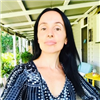12 Foucault’s Influence: Positioning Indigenous Knowledge Systems within the Australian Mathematics Curriculum
Michael Lang
Hughes, A. (2021). Positioning Indigenous knowledge systems within the Australian mathematics curriculum: Investigating transformative paradigms with Foucault. Discourse: Studies in the Cultural Politics of Education, 42(4), 487-498. https://doi.org/10.1080/01596306.2020.1715345

What does it mean when we speak of “closing the gap” in positive terms? Are there negative connotations associated with such a slogan? Hughes (2021) explains that the people involved in Australian curriculum are constantly talking about “closing the gap” in literacy and numeracy, something we hear about often in Canadian society. This slogan inherently has many problems however, especially when it is applied universally among people whose make up is from many different cultures. What success looks like can be very different, and we currently continue to use Western beliefs and systems of knowledge as the goal posts, or the gold standard of what everyone should be able to achieve. Although Hughes is based in Australia and her work centres around Indigenous peoples in Australia, her work and thoughts are easily transferred to our context here in Canada.
Some have argued that mathematics and science cannot possibly involve Indigenous ways of knowing due to the very nature of their topics (i.e., it is clear that these subjects we teach are grounded in Westcentric epistemological perspectives), and have purposely pushed us back in terms of recognizing Indigenous ways of knowing. Thus, through the lens of Foucault, we should ask ourselves why we prefer, or choose, Western forms of knowledge over non-Western forms of knowledge and learning. Hughes writes that “[w]ays of learning that are conducive to Indigenous students’ engagement are prioritised as appropriate ways forward for ‘indigenising’ curricula, however, what remains to be challenged within this context is the dominance of Western knowledge” (2021, p. 491). The very fact that Indigenous peoples very much do not have a say in the way knowledge in many classrooms throughout the country is disseminated, serves to keep them silenced and thus ensures non-Indigenous people continue to hold the power. This uneven balance of power continues to be shown within our own context in Canada.
Foucault enlightens us to say that “each society has its regime of truth, its ‘general politics’ of truth: that is, the types of discourse which it accepts and makes function as true; the mechanisms and instances which enable one to distinguish true and false statements, the means by which each is sanctioned; the techniques and procedures accorded value in the acquisition of truth; the status of those who are charged with saying what counts as true’ (Foucault, 1991). We have overtaken and implemented a system which leaves out the very people we forced out. Teachers are the ones who are charged with saying what counts as true, and thus teachers must be mindful of the ways they present their content to young, inquiring minds.
Perhaps, we can all work towards a critical collective consciousness and more of a collective agreement on….. This in turn challenges what we view as ‘the norm’ and paves the way for the unsilencing of many groups in which Western systems of knowledge may differ. We must ask ourselves why we have turned a blind eye to Indigenous ways of knowing, when exposing our children to it could be something that would benefit communities all across our country.
References
Foucault, M. (1977). Discipline and punish: The birth of the prison. Pantheon Books,
Hughes, A. (2021). Positioning Indigenous knowledge systems within the Australian mathematics curriculum: Investigating transformative paradigms with Foucault. Discourse: Studies in the Cultural Politics of Education, 42(4), 487-498. https://doi.org/10.1080/01596306.2020.1715345
Media Attributions
- Hughes © University of Newcastle

